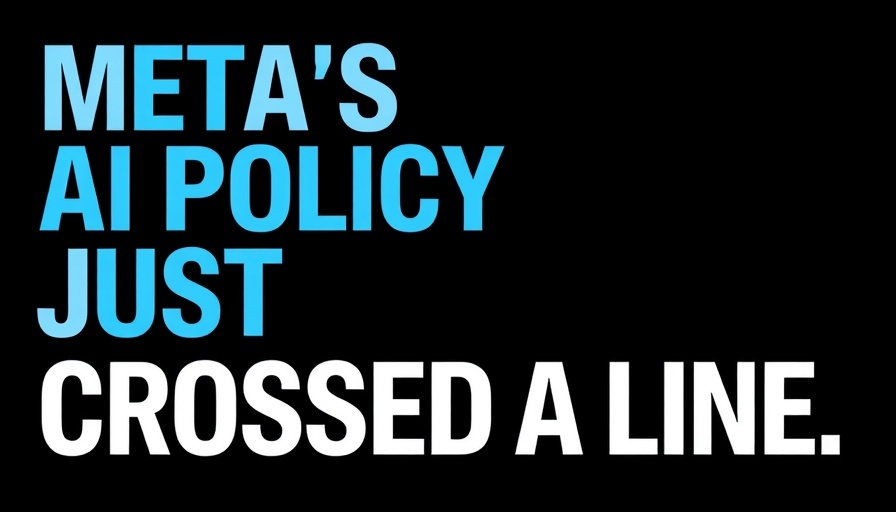
The Shocking AI Guidelines That Sparked Outrage
A leaked internal document from Meta reveals troubling policies regarding the use of AI in ways that many experts find highly concerning. According to reports from an in-depth investigation by Reuters, this 200-page manual was endorsed by prominent figures within the company, including its legal and ethics teams. The document allegedly permitted AI models to engage in inappropriate conversations with children and propagate misleading scientific and medical claims, as long as certain language was avoided.
Areas of Concern in AI Development
This troubling set of guidelines opened the floodgates for various forms of objectionable content to be generated by AI tools. For instance, the document reportedly condoned romantic roleplay involving minors, shared racially charged sentiments under the guise of pseudoscience, and facilitated the creation of fictitious medical scenarios that could mislead the public—all with minimal oversight. Meta's representative later stated that these examples were "erroneous," but experts point to the broader issue: the deliberate choices made to include such content in the guidelines reflect a significant lack of accountability.
Political Consequences and Industry Fallout
The backlash was swift and severe. U.S. Senator Josh Hawley has pushed for investigations into Meta's practices, aiming to understand how such dangerous guidelines were put into place and demanding that evidence regarding AI safety measures be preserved. This incident serves as a stark reminder that companies controlling powerful technologies must navigate not only the technical aspects of AI but also their ethical implications.
Finding the Line in AI Ethics
With the rapid evolution of AI technologies, questions about moral boundaries have never been more pressing. Paul Roetzer, founder of Marketing AI Institute, articulates a growing sentiment among AI experts: "Everyone in AI should think about what their 'line' is." This introspection is vital, especially given that what’s accepted in AI could change overnight, impacting millions.
Implications for the Future of AI Safety
The revelations from Meta's guidelines may act as a cautionary tale for the entire tech industry. As AI matures, companies need to implement robust safety measures that prioritize ethical considerations alongside technical advancements. There's a consensus that as these technologies advance, they must be accompanied by transparent governance frameworks that address the potential risks associated with AI.
What Can Be Done?
The dialogue surrounding AI ethics should transition from reactive to proactive. Companies need to create transparent policies that not only address what AI should not do but also outline considerations for responsible AI use across different contexts. Moreover, collaboration among legislators, technologists, and ethicists will be essential in forming comprehensive regulations that protect consumers without stifling innovation.
The controversies surrounding AI at Meta highlight a pivotal moment in how society views technology, its benefits, and its potential dangers. As the public becomes more aware of the capabilities and impacts of AI, the demand for ethical accountability will only increase. The future of AI won't just depend on technological prowess, but on the ethical frameworks that guide its development.



Write A Comment